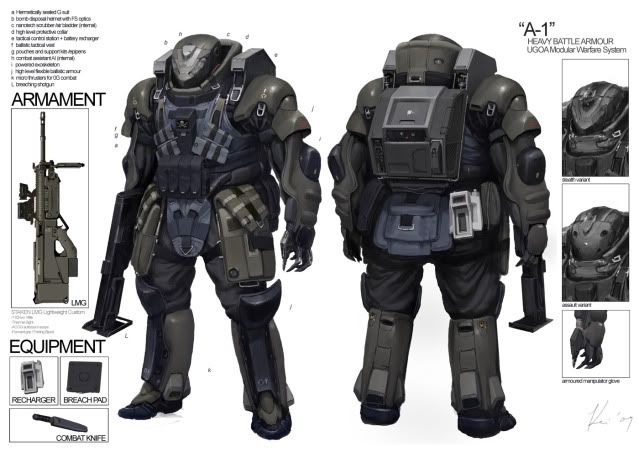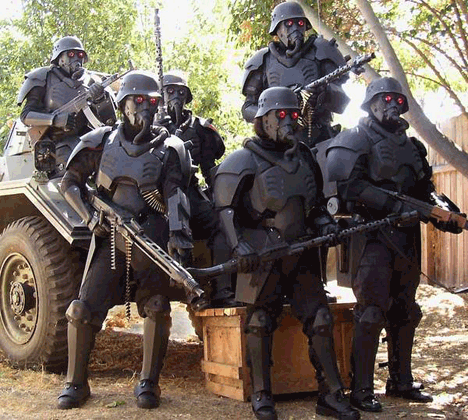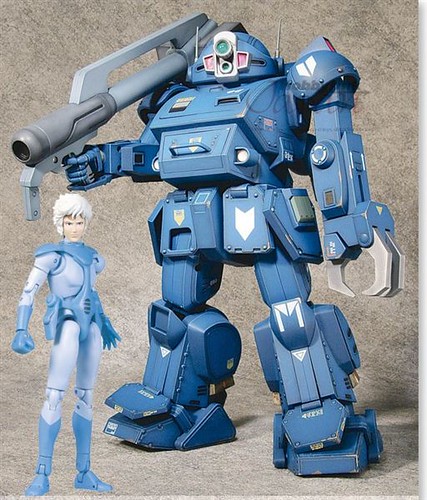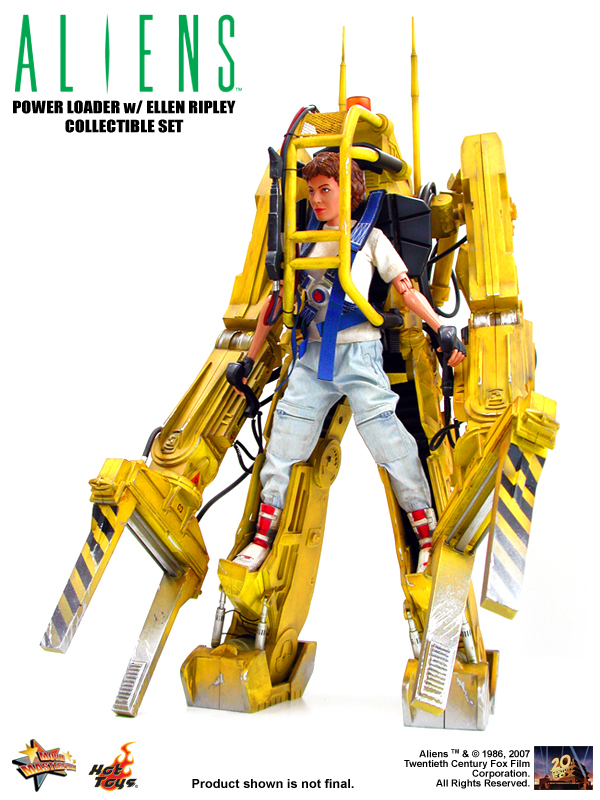General Mung Beans wrote:The Terran Federation is hardly fascist-its a meritocracy. By comparison its electorate is larger percentage-wise than pre-Great Reform England and several other "liberal" states.
You're buying into the hype.
The Terran Federation is "meritocratic" only if you accept the premise that everyone who can tough out boot camp is superior to everyone who can't or chooses not to. And if, for example, you attach
zero merit to anti-authoritarian people who criticize the way the state is structured. The Federation is rather well designed to create a class of smug warrior-elites to run itself, but that doesn't make it a good thing. It's not really much more democratic than ancient Sparta was- and ancient Sparta wasn't.
Personally, I consider the Terran Federation interesting because it represents a very alternate line of evolution from the common ancestor: 1950s Western democracy. Here, instead of the steady trend toward increased personal (and corporate) freedom of action, we see more or less the opposite. The idea worth exploring is how constant apocalyptic warfare (at
least WWIII) causes people to emphasize conformity, a warlike spirit in parts of the population, and a public order at all costs.
The big conflict in the book is between this sort of... Spartanized democracy which is individualistic but conformist, and a mass-society that doesn't really contain "people" as humans comprehend the term because it's that optimized toward communal utility.
Guardsman Bass wrote:That was just Rico, though. He wanted to be in the military. It's mentioned in the book that most volunteers don't serve in the military, although the military seems to think it's the highest status position to get.
The exceptions to the "military service" option seem more along the lines of "manning a research station in Antarctica" and less like "work in an office for the government at minimal wages," though.
All that said, it is a fascist society. All their freedoms and duties are in the context of the State, and they win the right to wield political power by proving their devotion to the State.
One of the biggest problems the book's had over the years is how hard it is to tell whether Heinlein shares the political views of the book. Examining his other writings doesn't even really resolve it. On the one hand, it's pretty clear that he thought:
1) A universal franchise is a bad thing, because some people are not competent to have a voice in the fate of society. He may not have believed this at all times in his life, but he definitely avowed it later on, among other things in the context of discussing
Starship Troopers. Although his actual suggestions are more like "voting booth prints out a quadratic equation. You must solve it to be able to vote. Humorously, this may mean Little Susie can vote and her father cannot..."
Which is at least less fascism-like than "military service required for the vote."
2) People should be generalists, not specialists- even though his politics shifted from socialist to libertarian to weirdtopian over the course of his life, this remains a constant throughout his work. The idea of a sentient species divided into castes by biology
always seems to have been a nightmare scenario for Heinlein.
Later in his life, he began to associate the idea of such a species with communism, apparently believing this to be the logical outcome of the divide between Party intelligentsia and controlled masses in a communist society. How accurate was that? Certainly not 100%- but look at North Korea and tell me it's 0%. If the North Koreans could feasibly divide their society into classes Alpha through Epsilon a la
Brave New World... I rather suspect they would.
3) Anything that tends to enslave the individual is bad- again, this stays constant throughout his work. Having obligations and dependents is not the same thing as being enslaved. But to take an example, he considers
having a god, a real tangible superhuman being that lives in your temple/palace and controls and guides your actions mentally, to be a bad thing. At least for humans.
I could probably list some other recurring themes, but those are the big ones that come to mind.
The question is, to what extent does
Starship Troopers reflect the details on what he thought about those themes at that stage of his life? To what extent are the propaganda lectures in the book "Heinlein speaking" and to what extent are they, well, the same kind of political indoctrination almost everyone gets about how good their own brand of society is? The viewpoint character is not a political commentator, nor is he meant to be; he's not a technological or analytical genius, he's a grunt. People like this
do tend not to worry very much about the political legitimacy of their society, to not ask a lot of questions about it, and when asked to talk about it, they tend to echo slogans without thinking very hard. A lot of them will, when asked to stop and think about it, actually do so- reconsider the slogan in light of what they know. But it's not an instinct for someone like Rico to ask whether the authoritarian line he hears in school is
right.
Did Heinlein pick an uncritical protagonist because he's trying to brainwash gullible teenage nerds into becoming authoritarian-libertarians? Or did Heinlein pick an uncritical protagonist because he's trying to write the story of the Poor Bloody Infantryman, like he always said... and if the Poor Bloody Infantryman were a political type, war would look very different?









